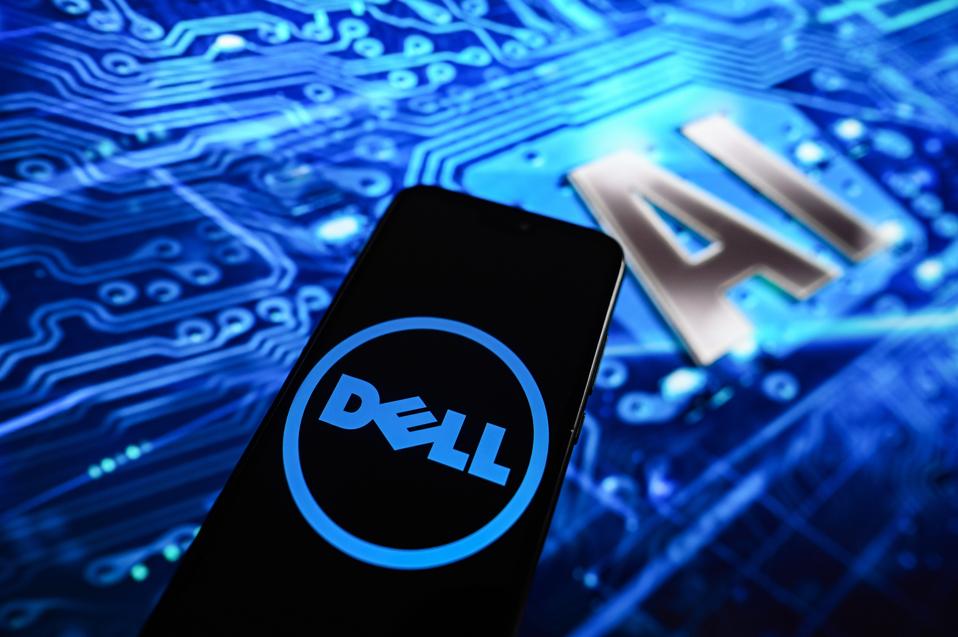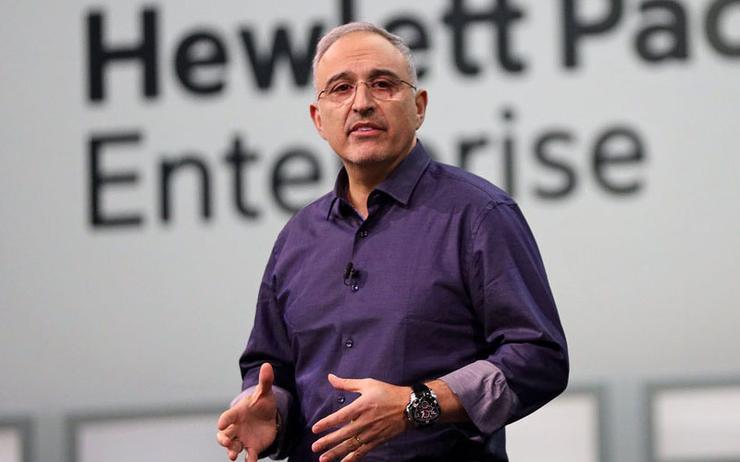Every week NAND Research puts out a newsletter for our industry customers. Below is a excerpt from this week’s, February 10, 2025.
Driving the Week
There are no big industry events this week, but there promises to be plenty of active debate about the impact of AI, and the policies governing that impact, at the AI Summit in Paris.
Earnings continue, with Arista, Lattice, and Teradata all releasing on Monday; Tuesday sees Datadog, while Wednesday is a big day with Cisco, Rapid7, Quantum, and Siemens all announcing. CyberArk and Informatica round out the week on Thursday.
Overheard
Where will TikTok land? President Trump says Microsoft is eyeing TikTok again, reviving memories of 2020 when the company almost bought the app before Beijing shut it down. This follows last week’s rumors from Trump that Oracle was going to buy the company, and fast-breaking news that Trump’s proposed US Sovereign Wealth Fund might be the right place for the company. All to say: we don’t know where the social media giant will land!
Acquisition fever: data wrangler Snowflake is reportedly in talks to acquire analytics startup Redpanda to improve its AI-powered real-time datacapabilities. Redpanda’s event streaming technology could make Snowflake a strong rival to Databricks.
Shifting buyers: Last week we relayed rumors that Arm was a potential buyer for beleaguered Arm-based server processor company Ampere Computing. Now, the smart money is on Arm’s financial baker SoftBank buying the CPU maker for an estimated $6.5 billion, per Bloomberg.
Who will be their new CEO? It’s going to take a special set of skills to turn Intel around, and, according to Trendforce, the latest rumor is that those skills might belong to Global Foundries outgoing chief Tom Caulfield.
This follows previous rumors that Marvel CEO Matt Murphy, ex-Cadence CEO Lip-Bu Tan, former TSMC Chairman Mark Liu, former Intel exec Gregory Bryant, and Apple SVP Johny Srouji are all up for job. All to say, we really don’t know what’s happening, except that executive search firm Spencer Stuart is working hard to find the right candidate.
Policy Watch
Britain is officially done with AI-generated smut. Under new legislation, creating or sharing sexually explicit deepfakes will be a crime, with perpetrators facing jail time. The move comes as AI-powered image manipulation spreads like wildfire, with some estimates showing millions of explicit fakes targeting women circulating online.
Meanwhile, on this side of the pond, Congress is still debating how to handle the deepfake problem. Stay tuned.
U.S. Investigates DeepSeek for Allegedly Acquiring Banned AI Chips – Washington is taking a hard look at DeepSeek, a Chinese AI firm that allegedly got its hands on banned Nvidia chips through Singapore. Nvidia’s sales in the region are skyrocketing, raising concerns about whether U.S. sanctions are working.
Texas Governor Bans DeepSeek’s RedNote App on Government Devices – Governor Greg Abbott has had enough of Chinese-linked AI. Texas just became the first state to ban DeepSeek’s RedNote app from all government devices, citing national security concerns.
Lawmakers Push for Federal Ban on DeepSeek – Following Texas’ lead, Congress is now considering a federal ban on DeepSeek’s apps, with bipartisan support. Expect more movement on this in the coming weeks.
Mere minutes after Trump’s latest round of tariffs on China took effect, Beijing fired back—with an antitrust probe into Google.
This is just the latest battle in the U.S.-China economic war, and Intel might be next. Reports suggest China is considering its own antitrust probe into Intel, just as Trump’s trade tensions escalate.
Enterprise AI
Japanese tech giant NTT Data wants a $2 billion AI payday—and it thinks its new Smart AI Agent will make it happen by 2027. The company is going all-in on enterprise AI automation, betting that businesses will soon have fleets of AI-powered virtual workers handling customer service, compliance, and logistics.
Bengio & Co. warn the world (again) about AI Safety: AI pioneer Yoshua Bengio and 100+ AI experts just dropped a 300-pageInternational AI Safety Report, ahead of this week’s AI Summit in Paris. Their message? AI risks are real, but regulating too early or too late could both be disastrous.
The report introduces the “evidence dilemma”—a debate over how much harm AI needs to cause before governments should step in. Do we wait for clear proof of catastrophe before acting, or preemptively regulate and risk stifling AI’s potential?
China’s AI is closing the gap on Nvidia: Chinese AI company DeepSeek just revealed that Huawei’s Ascend 910C AI chip has hit 60% of the inference power of Nvidia’s H100—a massive leap for China’s AI hardware ambitions.
Scrape first, apologize later: Nothing like a good old-fashioned copyright scandal — Meta reportedly torrented over 81.7TB of pirated books to train its AI models. Authors and publishers are furious, lawsuits are already being drafted, and the EU and U.S. could take regulatory action.
Cybersecurity
Bad news for cyber-criminals: For the first time in years, ransomware payments plummeted in 2024. Why? Companies finally got smarter—better backups, stronger security. Cyber insurers got stricter, refusing to pay out ransoms. Law enforcement cracked down, making some groups think twice.
Quantum computers may still be in their early days, but Palo Alto Networks isn’t waiting around for the encryption apocalypse. The cybersecurity giant announced its new Quantum Random Number Generator (QRNG) Open API, designed to help companies prepare for quantum-resistant security.
By the Numbers
CSPs are facing an uncomfortable truth: providing differentiated and competitive AI is expensive, with significant CapEx demands. Google announced plans to flood money into AI infrastructure and data centers.
AWS is doing similar, announcing plans to spend nearly an entire year’s worth of AWS revenue—tens of billions—on AI investments. This includes more internally developed AI silicon, more AI infrastructure, and more AI models to better compete with OpenAI, Google, and Meta.
Quantum Computing is finally making real money, not just headlines. Long-time Quantum player IBM quietly booked $1 billion in cumulative quantum computing revenue. Despite NVIDIA’s posturing to the contrary, Quantum could be the next trillion-dollar tech race—if practical applications emerge fast enough.
A big shift in servers: number two processor vendor AMD outsold Intel in the data center market for the first time in Q4 2024. Intel is still massive, but this shows that AMD’s EPYC chips are dominating cloud providers, Intel’s delayed AI chip roadmap is hurting them, and the once-unthinkable idea of Intel becoming #2 in servers is now reality.
IT unemployment has jumped to 5.7%—one of the highest levels in years. The reason? AI is automating tech jobs faster than expected. The hardest-hit roles are helpdesk & IT support, system administrators, and junior programmers – raising valid concerns about where the next generation of senior software engineers will come from. Assuming, of course, they too aren’t replaced by AI.
Transitions
Sudhir Chaturvedi is stepping in as Global Chief Growth Officer & North America CEO at NTT Data. Chaturvedi is a heavy hitter with leadership stints at LTIMindtree, Infosys, and NIIT Technologies.
Outgoing CEO Eric Clarkis taking on the CEO role at Manhattan Associates.
Riding the liquid cooling wave: liquid cooling giant Iceotope announced two major appointments: ex-SkyHive CEO Jonathan Ballon is taking over as President & CEO, while form HPE EVP & President Alain Andreoli joins as Non-Executive Chairman.
Amazon’s Project Kuiper, its answer to SpaceX’s Starlink, has hired Google’s top customchip exec Maruthy Vedam to lead space-based silicon development. This is a big play for Amazon.
Unstructured storage provider MinIO has hired Erik Frieberg as its new CMO. Frieber has previously done time at Pantheon, VMware, Puppet, and MongoDB, and replaces Jonathan Symons, who is moving into an advisory role at the company.
What We’re Reading
The Information goes deep into How Google Cleaned Up Its Cloud Act.
The New York Times explains how if You’re Shopping for Arms? Ukraine May Soon Be Your Best Bet, following both its current tech-heavy drone war against Russia and its past history (and current culture-driver) as the Soviet Union’s cold war technology center.
Raconteur tries to answer the question: Will Digital Twins Ever Become the Standard in Supply Chains?
Finally, Arstechnica explores the genesis of our current AI moment, and How a stubborn computer scientist accidentally launched the deep learning boom.
Companies Mentioned: Amazon, AMD, Ampere Computing, Arm, AWS, Databricks, DeepSeek, Google, IBM, Iceotope, Intel, Manhattan Associates, Marvell, Meta, Microsoft, MinIO, NVIDIA, NTT Data, OpenAI, Oracle, Palo Alto Networks, Redpanda, Snowflake, SoftBank, TikTok




